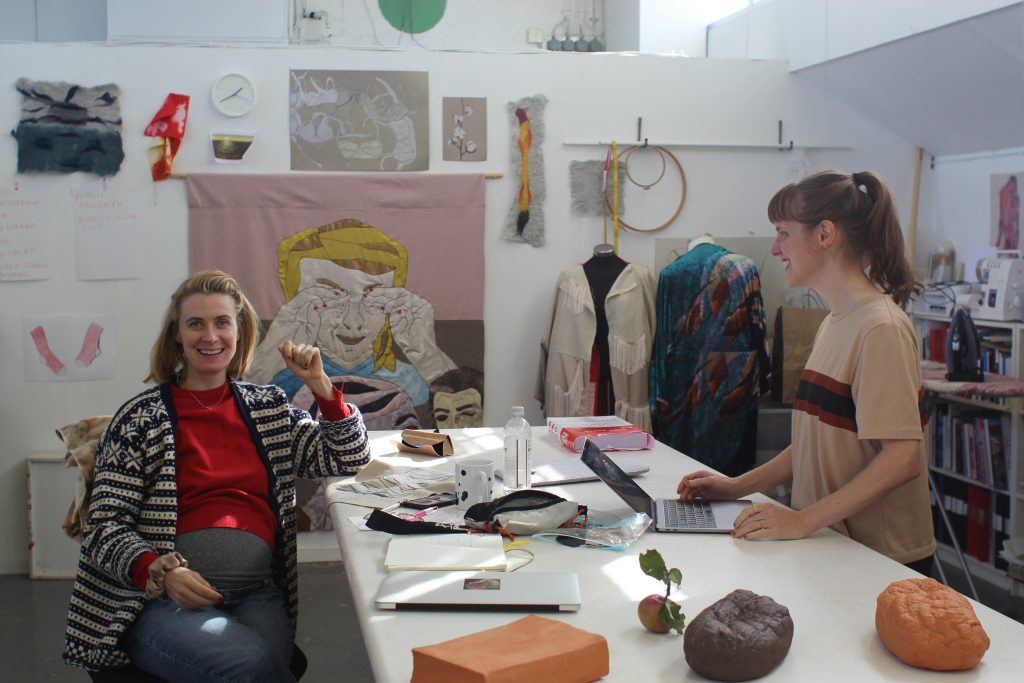Frida Hållander and Åsa Norman
Studio grant holders in Stockholm 1 October 2020 – 30 June 2021
Frida Hållander and Åsa Norman have collaborated closely since 2014.
Their most recent collaboration is an on-going artistic work The factory girls – The wilful textile worker, that wants to highlight and discuss the conditions, knowledge and resistance of women in the textile and home industry; their willingness and self-will, which is expressed in organization, professional pride and strategies.

Frida Hållander och Åsa Norman, Photo: Sandra Lundberg
During their residence at IASPIS, Frida and Åsa will work on a book, and artistically in various materials, around the play Fabriksflickorna – makten och härligheten (The Factory Girls – The Power and Glory) by the directors Suzanne Osten and Margareta Garpe (1980). The play and its comprehensive archive and documentation material address a complex historical process of the Swedish textile and clothing industry in the 1960s and 1980s, during which several industries underwent a restructuring process. The project examines how the textile industry has left traces in bodies and how the experiences of these bodies have erected the industry. Through crafts methods, Frida and Åsa listen to testimonies and knowledge from the Swedish textile industry; a restructured industry that today faces global social and ecological challenges.
Frida Hållander is a craft-artist and holds a PhD from Konstfack and HDK-Valand The Faculty of Fine, Applied and Performing Arts, University of Gothenburg, Sweden. Her doctoral thesis Whose Hand is Making? A Sister-Text about Craft, Class, Feminism and the Will to Contest (2019), includes a case study which addresses the thematics of textile and the collective story of women that have worked in sewing factories and homebased industry.
Åsa Norman is a textile artist educated at HDK Steneby, Dals Långed, Sweden, and Konstfack, Stockholm, Sweden. Her work deals mainly with how different female organizations and formations have been formed socially and politically throughout history, but also in the present. She is often researching how ways of working within the field of textile can organize acts of resistance.

